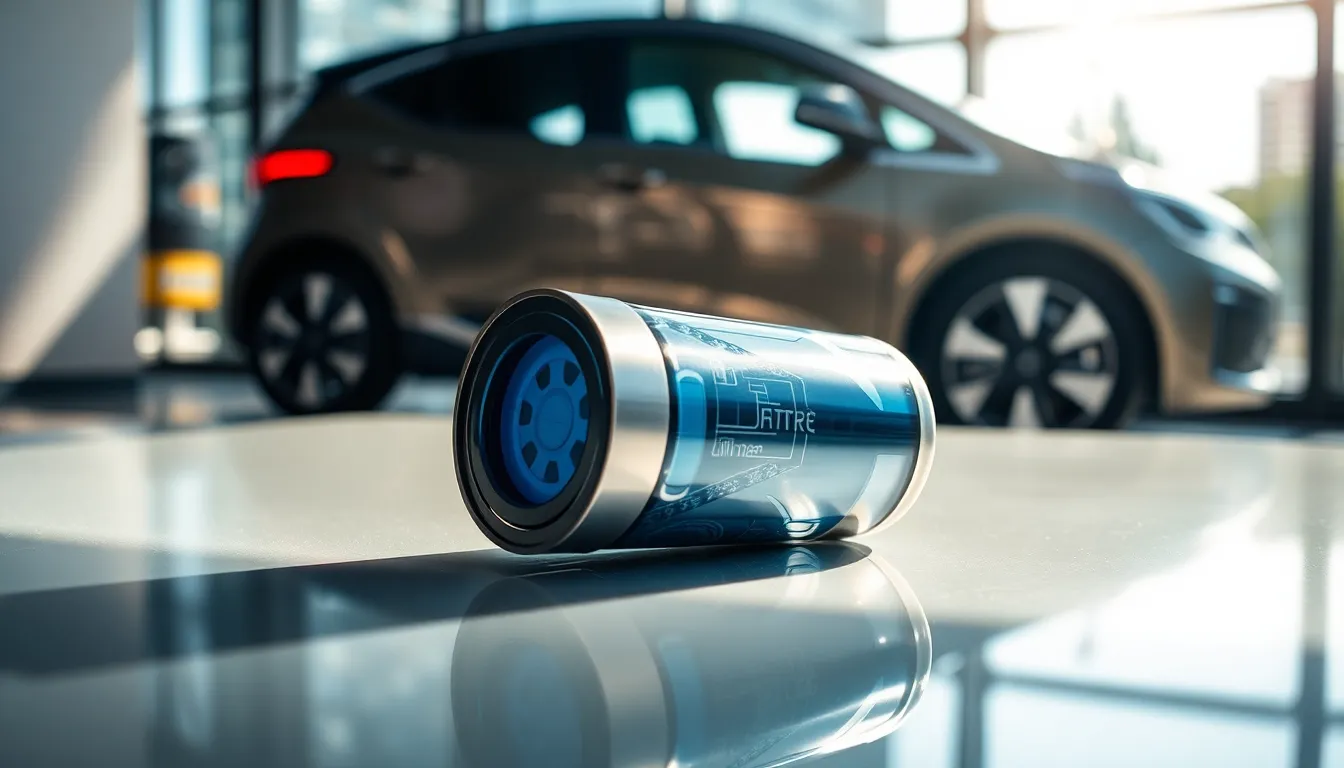Power retention refers to the ability of a system or device to maintain its energy output over time, an increasingly vital aspect in various fields such as electronics, renewable energy, and more. As technologies advance, understanding power retention becomes crucial for improving efficiency and sustainability. This article delves into what power retention is, its significance across different industries, and innovative techniques and challenges related to this concept. Readers will also explore future trends shaping the landscape of power retention technology.
Table of Contents
ToggleWhat Is Power Retention?

Power retention is defined as the capability of a system to hold onto its stored energy and deliver that energy effectively over a period of time. This concept is especially important in batteries, capacitors, and energy storage systems, where maintaining a charge without significant loss is crucial for performance.
In essence, power retention determines how long and effectively a device can operate before needing a recharge or replacement. For instance, in rechargeable batteries, power retention affects not only lifespan but also usability in everyday applications, from smartphones to electric vehicles.
Importance of Power Retention in Various Fields
The significance of power retention spans numerous domains, providing numerous benefits:
- Consumer Electronics: Devices like smartphones and laptops rely heavily on power retention. High power retention makes them more user-friendly and convenient, reducing the frequency of charging cycles required.
- Renewable Energy: In wind, solar, and hydroelectric power systems, energy storage is essential for managing supply and demand. Efficient power retention ensures that excess energy generated can be stored for later use, aiding in grid stability and reducing waste.
- Electric Vehicles: For electric vehicles (EVs), power retention directly impacts range and efficiency. Enhanced power retention can lead to longer drives without needing recharge, addressing range anxiety among users.
- Industrial Applications: Industries often depend on power retention for uninterrupted operations. Reliable energy storage systems can buffer against supply fluctuations, ensuring consistency in processes.
Factors Affecting Power Retention
Several key factors influence power retention in various systems:
- Material Properties: The intrinsic properties of materials, such as conductivity and dielectric strength, considerably impact energy storage capabilities. High-quality materials tend to exhibit better retention.
- Temperature: Environmental conditions play a critical role in energy retention. Higher temperatures generally lead to faster energy losses, while optimal cooling can enhance performance.
- Charge and Discharge Cycles: The frequency of charging and discharging can lead to wear and tear in batteries. Higher cycle counts often reduce the overall power retention capabilities over time.
- Design and Architecture: The construction and design of energy storage systems can affect efficiency. Efficient designs minimize energy loss during storage and retrieval, improving overall retention.
Techniques to Enhance Power Retention
To improve power retention, various techniques can be employed:
- Advanced Materials: The use of graphene, lithium-silicon alloys, and other innovative materials can enhance the performance of batteries and capacitors, improving their retention capabilities.
- Temperature Management: Implementing effective thermal management systems can help in reducing losses due to heat, maintaining optimal temperatures for energy storage systems.
- Smart Charging Techniques: Utilizing smart charging protocols can extend battery lifespan and improve retention by controlling the charging speed and minimizing voltage spikes.
- Regular Maintenance: Ensuring that energy storage devices are maintained properly helps prevent issues that can lead to reduced retention over time.
Applications of Power Retention in Technology
Power retention finds applications in various technological fields:
- Smart Grids: Efficient power retention systems are integral to smart grids, allowing for better management of distributed energy resources and optimizing energy flow and consumption.
- Wearable Technology: Devices like fitness trackers and smartwatches require effective power retention to ensure long battery life in a compact form factor.
- Renewable Energy Systems: Applications in solar and wind energy systems rely on advanced energy retention solutions to grid stability, providing reliable power output when needed.
- Digital Data Storage: Emerging storage technologies are exploring how improved power retention can enhance data integrity and recovery in digital systems.
These applications showcase the ubiquitous nature of power retention in technology, underscoring its importance in innovation.
Challenges in Achieving High Power Retention
Even though technological advancements, several challenges persist in achieving optimal power retention:
- Degradation Over Time: Many energy storage systems face issues related to degradation, which impacts their capacity and, so, retention abilities over time.
- Cost of Materials: High-performance materials that enhance retention often come at a premium, making widespread adoption economically challenging.
- Technological Limitations: Current technologies may not fully exploit the potential of new materials or designs, leading to suboptimal performance.
- Market Readiness: Adoption delays can occur due to a lack of awareness or readiness in the market. Many companies may be hesitant to invest in new technologies without proven effectiveness.
Future Trends in Power Retention Technologies
Future trends in power retention technologies include:
- Solid-State Batteries: Promising higher energy density, solid-state batteries are expected to revolutionize power retention, improving safety and efficiency over current lithium-ion technologies.
- Artificial Intelligence (AI): The integration of AI in energy management systems may optimize retention strategies by analyzing usage patterns and adjusting accordingly.
- Hybrid Systems: Combining different strategies for energy retention, such as capacitive and battery storage, could yield more versatile and efficient systems.
- Environmental Adaptability: Future technologies might focus on adapting to varying environmental conditions, ensuring that power retention remains robust in different scenarios.
Conclusion
Power retention is an essential concept permeating multiple domains, from consumer electronics to large-scale renewable energy systems. Understanding its importance, the factors influencing it, and the potential for technological advancement can lead to improved efficiency and sustainability in energy use. As industries continue to innovate and develop smarter solutions, the future of power retention looks promising, paving the way for a more energy-efficient world.






